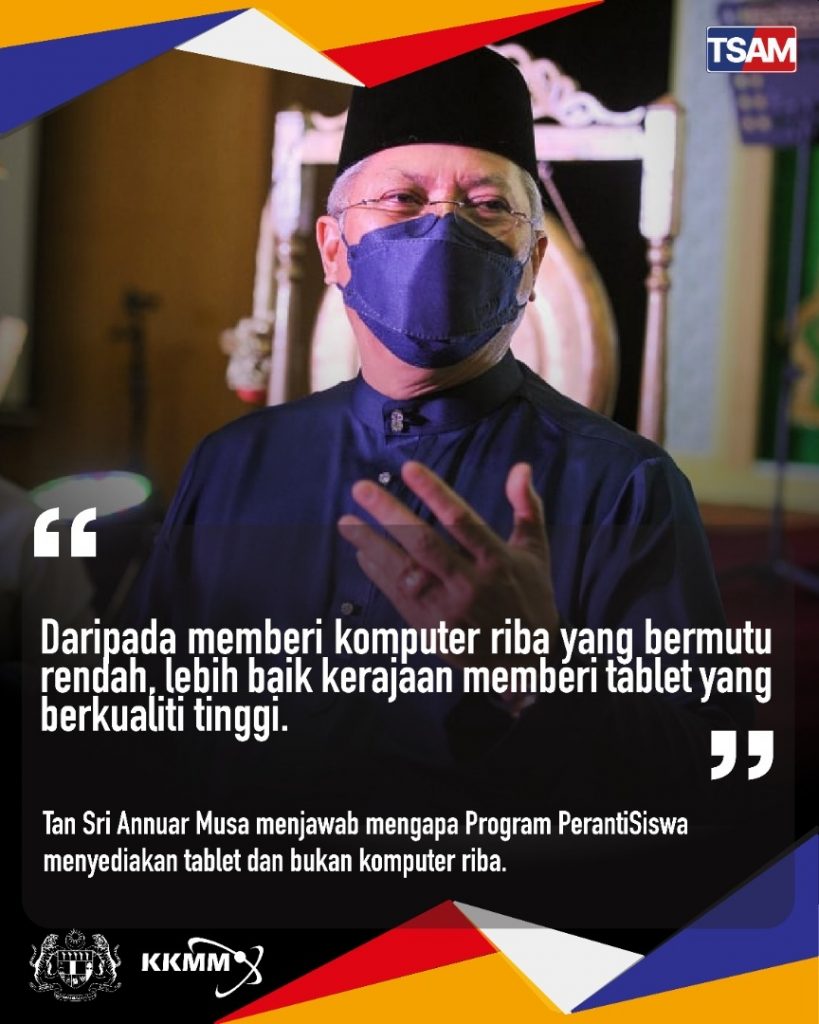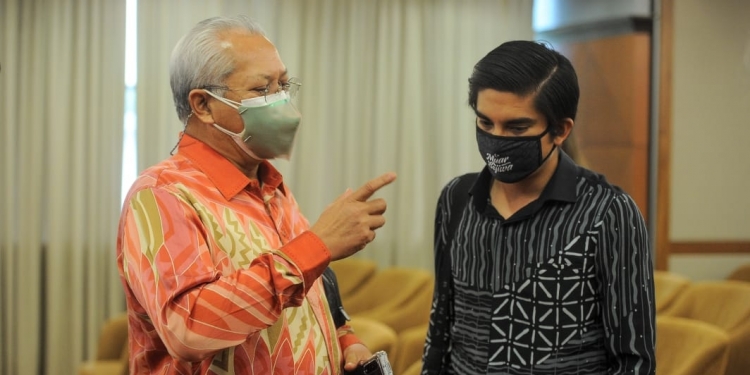The PerantiSiswa B40 tablet program is now open for registration and eligible students can already submit their applications online. Following public criticism, the Communications and Multimedia Minister (MenKomm) Tan Sri Annuar Musa has issued several responses on Twitter.

Addressing concerns about the decision to procure tablets instead of laptops, the Minister said it is better for the government to provide high-quality tablets instead of low-quality laptops. He said the government has committed to distributing 350,000 tablets from trusted brands to ensure that the students can benefit from them and that the programme does not go to waste.
Saya faham logik supaya alat peranti diberi terus kepada pelajar. Tetapi selepas mengambil kira semua faktor & memastikan terdapat kesinambungan dalam program PerantiSiswa, K-KOMM telah putuskan untuk memberi hak guna pakai kepada pelajar selagi mana mereka belum tamat pengajian. pic.twitter.com/KwKoC8vuRJ
— Annuar Musa (@AnnuarMusa) April 19, 2022
In a shared video, he also explained why the government decided to offer the tablets as a loan instead of a one-off direct distribution to students. He said with direct distribution, there will be no device replacement if a student has lost or damaged the tablet. There’s also the possibility that the student may pass the tablet to his siblings or put it on sale, which is against the original intention of the PerantiSiswa programme.
Through the loan model, he said students with damaged tablets can request a replacement, and this will ensure they will have a device at all times until they completed their studies. He also said that the loan model for the tablets will ensure continuity so that students who finished their studies can pass the tablets to new batch of students.
The first batch of PerantiSiswa tablets is expected to be distributed in June but we still don’t know what tablets will be offered. The minimum specs for the tablets were recently revealed which include a 10.1″ 1280×800 pixels resolution display, 4GB RAM, 64GB storage, built-in speakers, 4G LTE and WiFi support, 4,500mAh battery and it must run on Android 10 and above. A USB charger, bluetooth keyboard and stylus are also included.
Apa yang rakyat minta VS apa yang Kerajaan bagi. 🤷🏻♂️ pic.twitter.com/ojOKLvVN6p
— Syed Saddiq (@SyedSaddiq) April 11, 2022
If the government intends to ensure continuity, the best option is still the iPad as it can offer longer software support and it has a higher chance of being usable after three years. Most cheap Android tablets could hardly get any software and security updates after two years.
Dalam Bajet, PerantiSiswa dapat bantu 600,000 pelajar dengan peruntukan RM450 juta.
— Syed Saddiq (@SyedSaddiq) April 7, 2022
Tapi bulan lepas, umum bantu 400,000 pelajar sahaja dengan peruntukan yang sama?
Yang dibelanjakan untuk satu tablet berapa sebenarnya, RM800 atau RM1,125?
Ini belum lagi kira kos-kos lain. pic.twitter.com/uJysdvimMD
Former Youth and Sports Minister Syed Saddiq has been scrutinising the PerantiSiswa programme especially the hardware specs, budget and model of distribution. When the programme was first announced during the tabling of Budget 2022, the government allocated RM450 million to distribute 600,000 tablets to B40 students studying in institutions of higher learning.
Last month, Annuar Musa announced that the programme will benefit 400,000 students, which is a reduction of 33%. During the recent announcement, this figure is further reduced to 350,000 units. Assuming that the total budget remains unchanged, the government should have a budget of RM1,285 per tablet. Since this is a bulk buy, it would have made more sense for the government to negotiate a large order with Apple for the 9th gen iPad which costs RM1,499 for the 64GB WiFi version or RM2,149 for the 256GB WiFi option.
Previously, the Ministry of Finance revealed that telcos will contribute RM65 million to the PerantiSiswa programme, while the MCMC announced that six telcos will be involved. If the tablets were distributed through telcos, the cost of tablets can be further reduced with contract subsidies similar to the Pakej Peranti Keluarga Malaysia
[ SOURCE, IMAGE SOURCE ]








